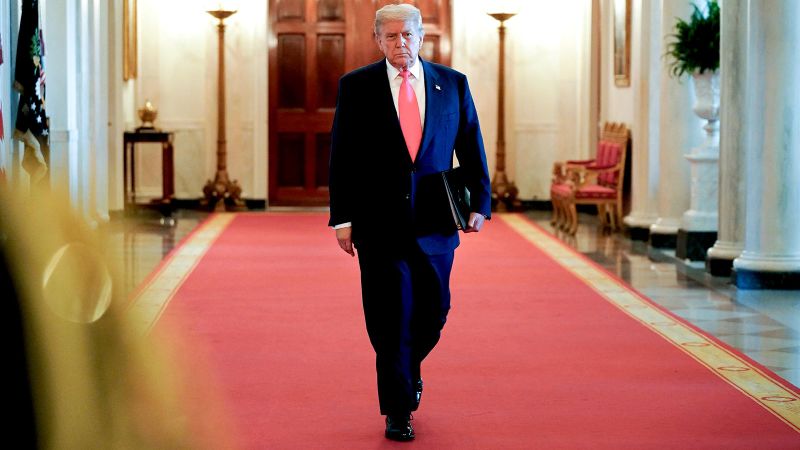We’ll have to wait and see exactly what the American bombing raid on Iranian nuclear sites accomplished and how far it set back the country’s nuclear ambitions.
The White House and Pentagon have launched a concerted effort to convince Americans the mission was successful and needed. At aPentagon news conference, Chairman of the Joint Chiefs of Staff Gen. Dan Caine went into great detail to explain the years of planning that underpinned readiness for the attack and how it was executed.
Details like those Caine shared could help sway public opinion and bring Americans behind strikes. But the early assessment of how the public views the strikes is probably not what the administration was hoping for.
A majority, 56%, disapproved of the strikes in aCNN pollreleased this week, before conflicting assessments of the mission’s success.
The results in CNN’s poll fall along predictable ideological lines. Democrats will pretty much always disapprove of what the Trump administration does, and Republicans will pretty much always approve.
Here’s how CNN’s polling team put itin their report:
Majorities of independents (60%) and Democrats (88%) disapprove of the decision to take military action in Iran. Republicans largely approve (82%). But just 44% of Republicans strongly approve of the airstrikes, far smaller than the group of Democrats who strongly disapprove (60%), perhaps reflecting that some in Trump’s coalition are broadly distrustful of military action abroad.
It’s an obvious rule of US politics that independent voters are generally the ones who might, as their opinions shift sway, tilt power in the country. And on a range of issues, they have been turning against Trump.
CNN’s Aaron Blake looked last weekat numerous polls on Trump’s sweeping domestic policy bill.“Independents opposed the bill by around a 3-to-1 margin … The KFF and Fox News polls – the ones with the fewest undecideds – showed 7 in 10 independents opposed it,” Blake wrote.
On what may be Trump’s signature issue,deportations and immigration policy, CNN’s polling editor Ariel Edwards-Levywrote about a CNN poll in April, “more than half of independents now say they have no real confidence in him to deal with the topic, with 56% now saying he has gone too far on deportations.”
Ontariffs, theeconomyand government cuts, Trump has failed, at least so far, to convince Americans who don’t identify with either party, that his agenda is the right thing to do.
I went to CNN’s chief data analyst, Harry Enten, who has been tracking this trend for some time.
“It’s pretty clear that independents and independent voters have turned against Trump,” he told me.
Back in April, Enten’s analysis said that Trump had the worst approval rating on record with independents at that point in a presidency.
“His issue is he has completely lost the center of the electorate,” Enten said, offering two very obvious and simple reasons why.
This will present major problems for Trump and the GOP going forward.
“Now, it’s possible that Trump and the GOP can do well going forward without independents breaking overwhelmingly for them,” Enten said, pointing out that independents broke for Trump in 2024.
“The problem is you can’t be losing independents 20+ points and survive in American politics,” he added.
At the same time, independents are hard to track for a variety of reasons. Unlike Republicans and Democrats, theydon’t act as a unified voting bloc, as Edwards-Levy and CNN’s Jennifer Agiesta wrote a few years ago.
“Plenty of independents are in fact partisan and they’re certainly not de facto moderates,” Edwards-Levy told me.
What do independents have in common?
“They’re less strongly tethered to particular partisan loyalties and less likely to be closely engaged with politics, all of which makes their views potentially more malleable than those of stronger partisans,” Edwards-Levy said.
In a recentWashington Post pollabout the Trump’s agenda bill, for instance, only 18% of Democrats and 25% of Republicans said they hadn’t heard anything about the controversial proposal to extend Trump’s first-term tax cuts, create new tax cuts and slash spending, including on Medicaid. It was a much larger portion of independents, 34%, who hadn’t heard anything at all about the president’s top legislative priority.
